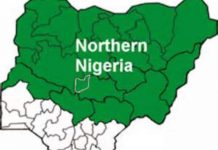The total value of Nigeria’s non-oil export to the United Arab Emirates (UAE) stood at $608 million in 2017, statistics from the Economic Research Department of Dubai Chamber of Commerce & Industry (DCCI) has indicated.
The data, which was made available to The Nation yesterday, showed that while UAE’s non-oil export to Nigeria stood at $612 million in 2017, rising from $605 million in 2016, the value of her non-oil imports from Nigeria was $608 million, down from $730 million in 2016.
While pearls and precious metals accounted for the largest share of UAE’s non-oil imports from Nigeria, valued at $590 million in 2017, wood and plaiting materials came second with total .import value put at $9.8 million. Vegetable products were valued at $5.8 million.
On the other hand, machinery/electronics, transport equipment, base metals, plastic rubber and chemicals formed the bulk of UAE’s non-oil export to Nigeria. The value of machinery/electronics and transport equipment export stood at $313 million and $85 million, respectively.
It, however, listed the high potential non-oil imports from Nigeria to include cocoa, sesame seeds, cashew nuts and natural rubber. High potential exports by UAE to Nigeria include electrical machinery, pearls/precious stones, copper and articles of leather.
The Chamber listed the high potential sectors in Nigeria to further boost bilateral trade between Africa’s largest economy and the UAE to include agribusiness, packaging, manufacturing and energy, noting that Nigeria’s considerable oil reserves and significant potential in her agric sector are areas of strength.
It, however, pointed out that Nigeria’s unemployment levels that have remained high and her business environment, which is in dire need of reforms are weaknesses.
It also said Nigeria’s economic policy remains personally-focused, posing a threat to investor certainty. It added that oil production remains under Niger Delta militancy.
Commenting, the Director, Marketing and Corporate Communication, DCCI, Mr. Rami Halawani, said as part of efforts to enhance future collaboration between businesses in the UAE and their Nigerian and other African counterparts, the Chamber was studying the possibility of establishing a representative office in Nigeria.
Apart from Nigeria, Halawani listed other African countries to include Angola, Uganda and Central African markets. According to him, the Chamber already operates four representative offices within Africa, including Ethiopia, Ghana, Mozambique and Kenya.
“Africa is rich in energy and mineral resources, but lacks the capital, resources and infrastructure to bring this natural wealth to the market.
“The UAE has access to the capital required by Africa to unlock the potential of its natural resources as well as the infrastructure to sustain economic growth,” Halawani said.







